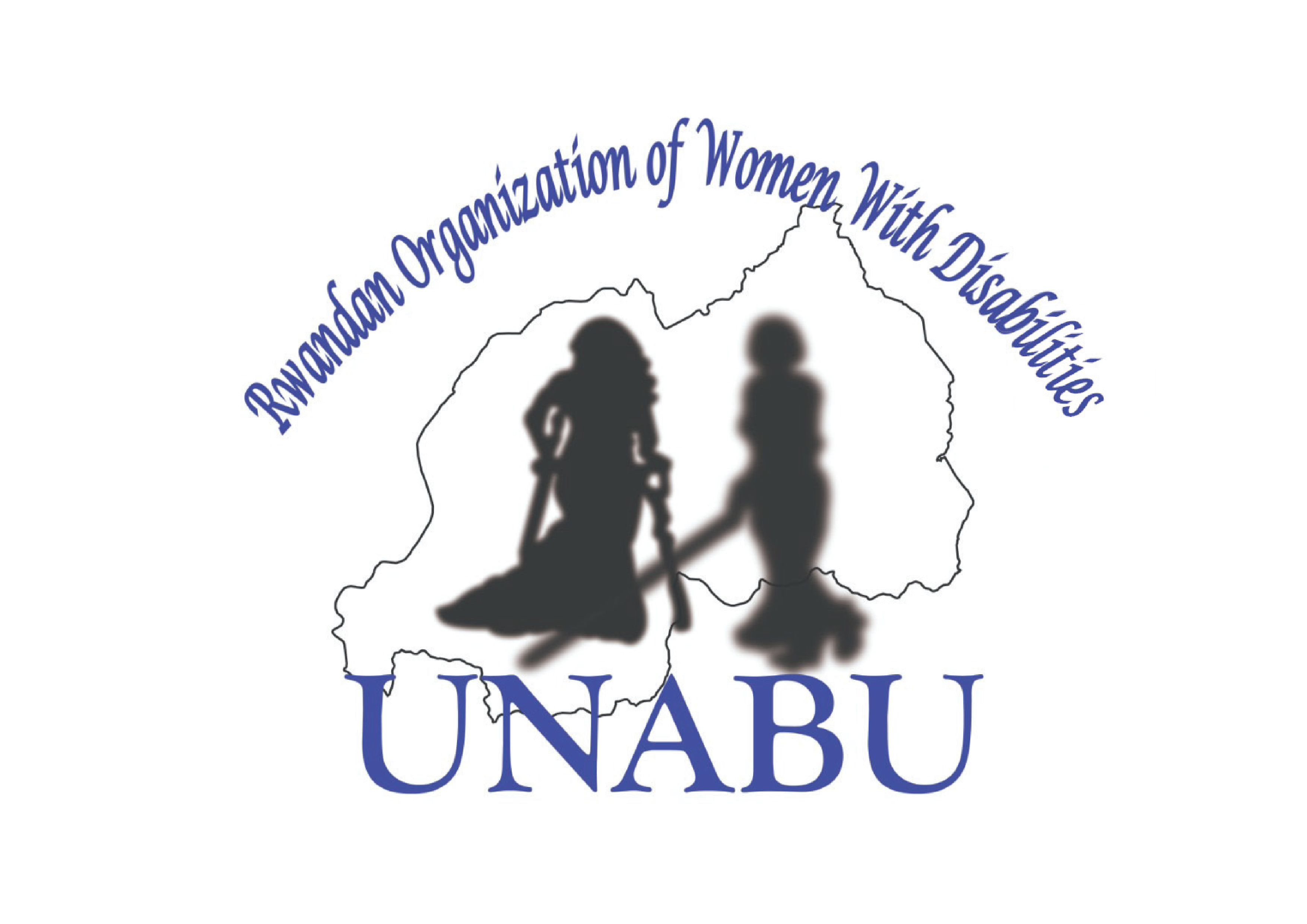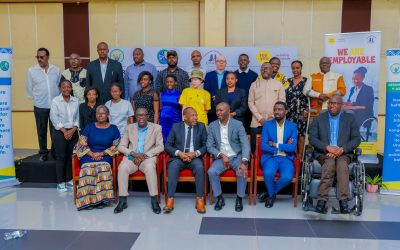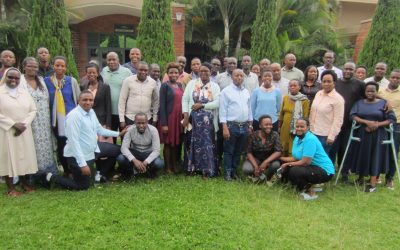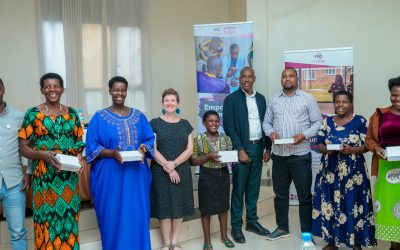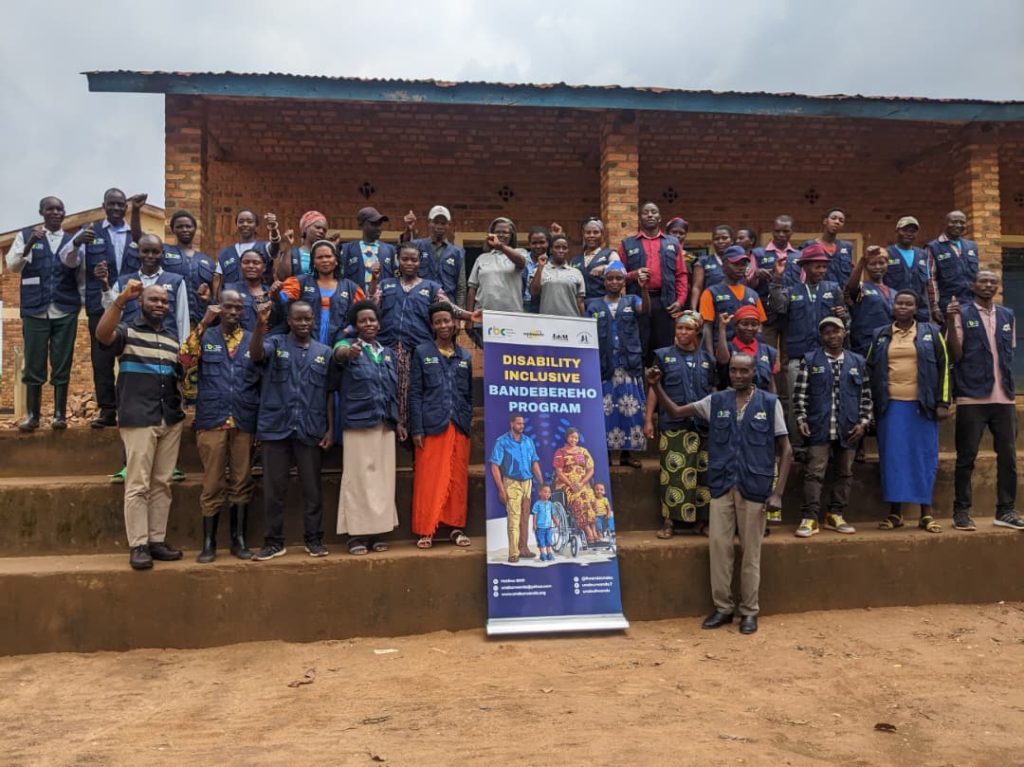
In Rwanda, where 3.4% of the population aged 5 and above lives with a disability, rising to 3.7% in rural areas, stigma, discrimination, and systemic barriers often exclude persons with disabilities (PWD) from essential health services and community participation. Based on the 2022 census, disability affects 391,775 Rwandans aged 5 and above, with women slightly more impacted. While global disability prevalence is 16%, Rwanda’s rural focus amplifies the need for grassroots efforts. The Rwandan Organization of Women with Disabilities (UNABU) recognizes that working solely with women with disabilities is insufficient to achieve a violence-free life for them. Drawing on lessons from various programs, UNABU has targeted grassroots institutions to prevent and combat violence. This includes sensitization in extended families, trainings for service providers and stakeholders on including persons with disabilities (PWDs), especially women, in programs, which UNABU deems crucial.
The Bandebereho program, a flagship initiative of the Rwanda Men’s Resource Centre (RWAMREC), engages men and couples to promote gender equality, maternal and child health, and violence prevention, serving as a key platform for change. Since partnering with UNABU in 2023, RWAMREC has prioritized disability inclusion to ensure PWDs can fully benefit from these services, promoting maternal and child health by addressing gender-based violence, health inequalities and negative attitudes towards persons with disabilities through community health workers (CHWs) as cornerstones for Bandebereho project implementation.
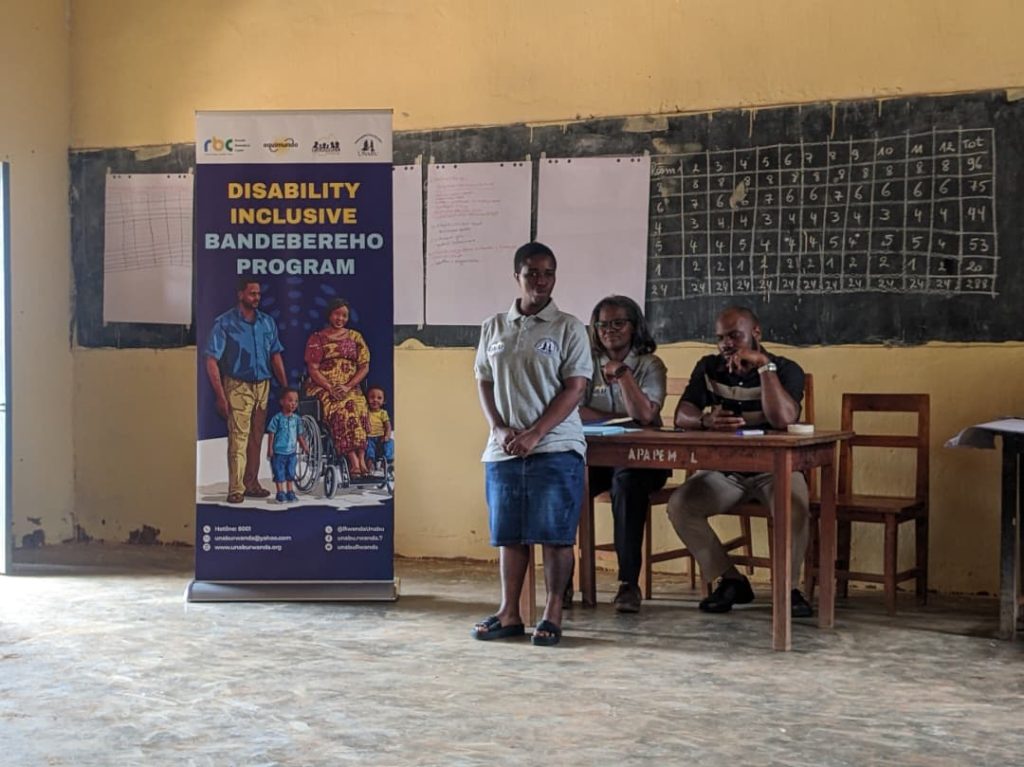
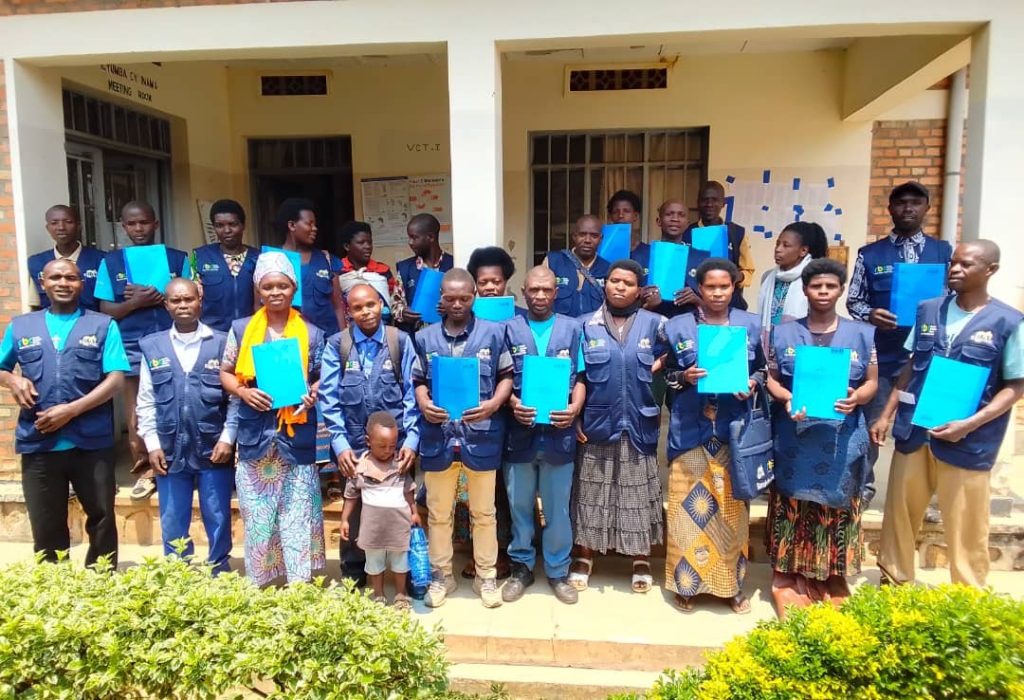
Building on UNABU’s 2024 technical assistance in Musanze District, which trained health professionals and CHWs to mainstream disability, UNABU and RWAMREC expanded to Gakenke District in the Northern Province. From August 19-22 and September 16-19, 2025, they conducted intensive two-day workshops across the district, training a total of 627 Bandebereho CHWs, along with supervisors and heads of health centers. These sessions aimed to transform CHWs into advocates for PWD, addressing exclusion, discriminatory practices, and lack of awareness.
The initial phase covered nine health centers: Rushashi (22 participants), Muhondo (40), Rwankuba (17), Rukura (14), Muyongwe (17) on August 19-20; and Karambo (27), Rutenderi (31), Kamubuga (36), and Nemba (32) on August 21-22. A total of 236 CHWs participated.
The follow-up phase engaged 391 CHWs from additional facilities: Ruli, Nyange, Minazi, Coko, Nyundo, Gatonde, Rusoro, Busengo, Bushoka, Cyabingo, Janja, Rutake, Mataba, and Nganzo.
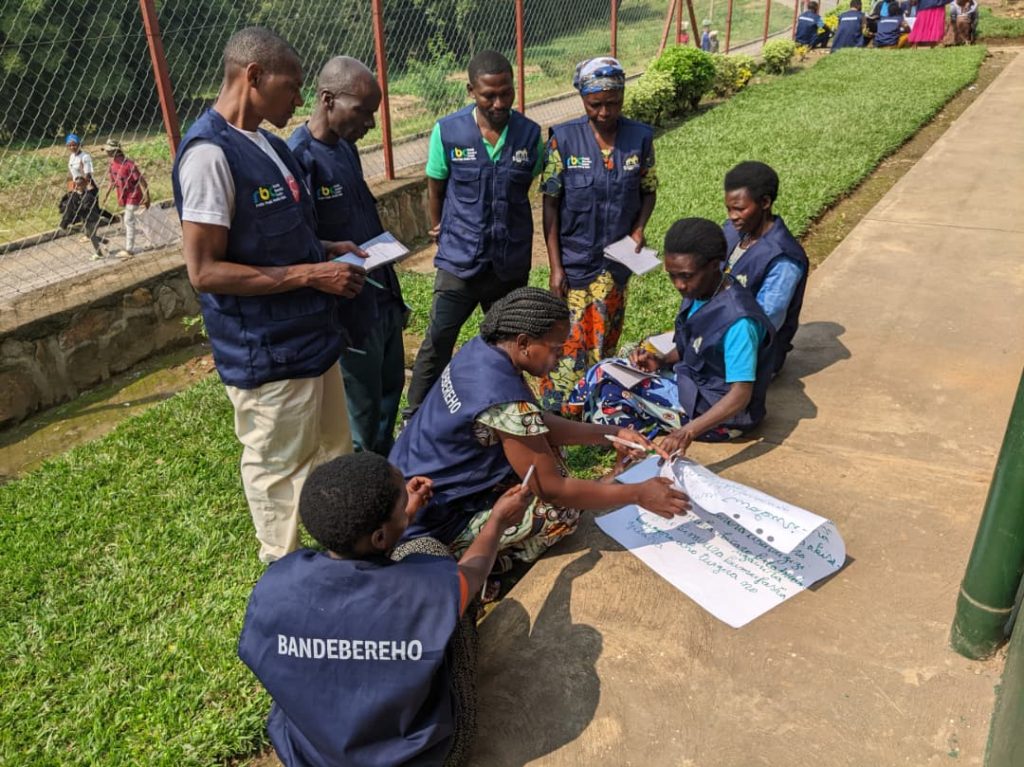
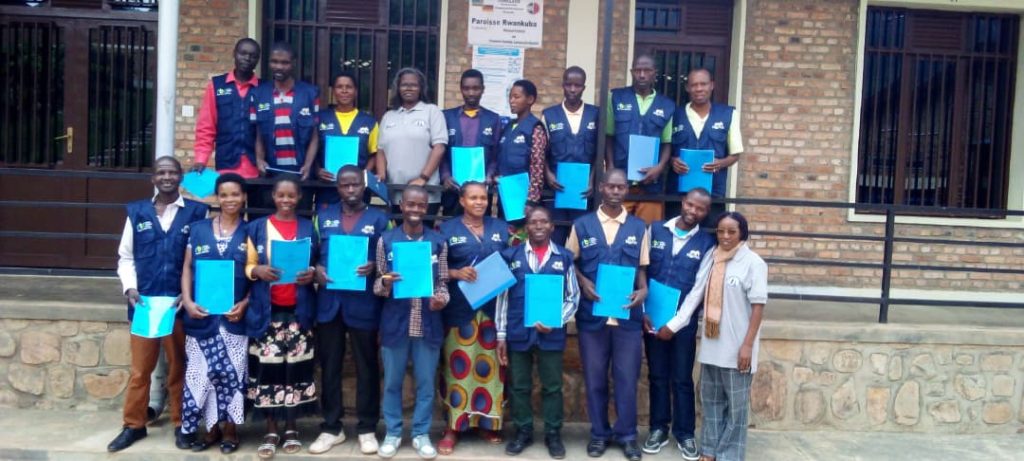
Guided by a comprehensive manual on including PWD in Bandebereho, the workshops featured interactive sessions, group exercises, role-playing, and discussions on real-life scenarios. Key topics included:
- Understanding disability as an interaction between health conditions and environmental barriers.
- Challenging stigma and promoting rights-based approaches.
- Defining violence, its root causes, and forms targeting PWD, especially women and girls.
- Rights of PWD in Rwanda, emphasizing collective responsibility for protection.
- Practical strategies for effective communication with individuals having physical, hearing and speech, visual, or mental disabilities.
- Best practices for welcoming and supporting couples with disabilities in Bandebereho group education spaces.
- Actionable steps for integrating PWD into activities, including action plans and commitments.
CHWs noted the training’s relevance, highlighting frequent encounters with PWD, particularly women and girls, but a prior lack of tools. They admitted past hesitations in involving families with disabilities due to integration challenges for those with hearing, speech, or intellectual impairments. Feedback ensured practical application, with pledges to advocate for PWDs.
These trainings led to transformations, fostering empathy and commitment. Testimonials revealed shifts from exclusion to inclusion and empowerment, categorized in two broad themes:
Personal Transformations and Attitude Changes
“As a mother of a child with multiple disabilities, I realized I’d mistreated him by excluding him. I’ll treat him equally, support his interests like animal rearing, and share this knowledge.”
“Families mistreat PWD thinking it’s protection, like locking a girl indoors. We must include them as community members.”
“I believed PWD shouldn’t marry, but they’re capable and deserve respect.”
“We ridiculed a child with physical disability in our family. I apologize and commit to changing mindsets.”
Enhanced Understanding and Practical Inclusion
“In our village, a man with a speech disability lacked a national ID due to neglect. I hadn’t paid attention, but now I’ll support him. I’ll also include PWD in Bandebereho sessions.”
“We often excluded PWD and didn’t know how to answer parents’ questions about children with disabilities. This training equips us to support families better.”
“We now know how to assist PWD in group education while respecting needs. We’re driving change in our communities.”
“Before, people confused illness with disability, like dental issues. Now I understand it’s about barriers preventing equal opportunities.”
Complementing the CHW trainings, UNABU led community awareness sessions on September 16, 2025, across seven cells in Gakenke: Rutabo, Kabatezi, Ruli, Nyange, Nyanza, Munyana, and Nyundo (heavy rain prevented Busengo). These reached 847 members: 365 men without disabilities, 9 men with disabilities, 460 women without disabilities, and 14 women with disabilities. Discussions covered disability concepts, GBV forms, and legal protections. A Social-Economic Development Officer from Rutabo noted mistreatment of those with psychosocial or intellectual disabilities, including denial of family decisions and physical restraint.
Key outcomes included deepened knowledge of PWD rights, commitments to address neglect, and pledges to integrate inclusive practices into Bandebereho. CHWs are now equipped to educate families, advocate for services like vaccinations and amplify PWD voices, marking progress toward equitable communities. These initiatives underscore the BANDEBEREHO program’s commitment to empowering CHWs and communities as champions for disability rights, paving the way for more equitable support and inclusion throughout Gakenke District.
Inspired by these transformations? Share this article, like and comment on disability inclusion, and follow UNABU for updates. Together, build a Rwanda where everyone thrives!
#UNABU #Rwanda #DifferentlyAble #PWD #HumanRights #GenderEquality #ClimateResilience #WomensEmpowerment #SustainableDevelopment
